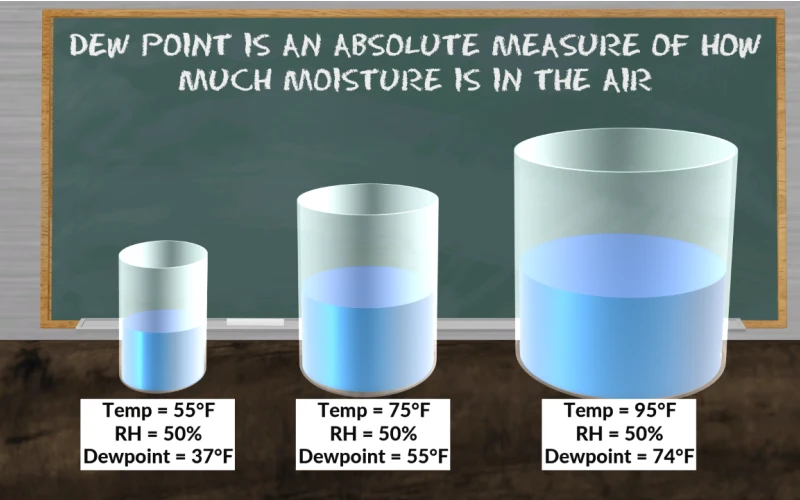
# High Dew Point Impact on Human Comfort and Health
## Understanding Dew Point and Its Significance
Dew point is the temperature at which air becomes saturated with water vapor, leading to condensation. When we talk about high dew points, we’re referring to conditions where the air contains a significant amount of moisture. Unlike relative humidity, which changes with temperature, dew point provides a more consistent measure of atmospheric moisture.
## How High Dew Point Affects Human Comfort
When dew point temperatures rise above 65°F (18°C), most people begin to feel uncomfortable. At these levels:
– The air feels sticky and oppressive
– Sweat evaporates more slowly from the skin
– Breathing may feel more labored
– Physical activity becomes more taxing
At dew points above 70°F (21°C), conditions become increasingly uncomfortable, and above 75°F (24°C), the air feels downright oppressive to most people. These conditions are particularly challenging in tropical climates or during summer heat waves in temperate regions.
## Health Implications of High Dew Point Conditions
Extended exposure to high dew point environments can lead to several health concerns:
### Heat-Related Illnesses
– Heat exhaustion
– Heat stroke
– Dehydration
– Muscle cramps
### Respiratory Issues
– Increased asthma symptoms
– Difficulty breathing for those with respiratory conditions
– Higher risk of mold-related allergies
### Cardiovascular Stress
– Increased heart rate
– Higher blood pressure
– Greater strain on the cardiovascular system
## Vulnerable Populations
Certain groups are particularly susceptible to high dew point conditions:
– Elderly individuals
– Young children
– People with chronic illnesses
– Outdoor workers
– Athletes training in hot, humid conditions
## Mitigation Strategies
To cope with high dew point conditions:
– Stay hydrated with water and electrolyte-replenishing drinks
– Wear lightweight, breathable clothing
– Limit outdoor activities during peak heat hours
– Use air conditioning or fans to improve air circulation
– Take cool showers to lower body temperature
– Monitor local heat advisories and dew point forecasts
## The Science Behind the Discomfort
High dew points make us feel hotter because they impair our body’s natural cooling mechanism. Normally, sweat evaporates from our skin, carrying heat away from our bodies. When the air is already saturated with moisture (high dew point), evaporation slows dramatically, reducing our ability to cool ourselves effectively.
## Long-Term Adaptation
People living in consistently high dew point regions often develop some degree of acclimatization over time. However, even acclimated individuals can experience health impacts during extreme conditions or heat waves. Urban areas with heat island effects can experience even higher apparent temperatures due to the combination of high dew points and elevated air temperatures.
Understanding and respecting high dew point conditions is crucial for maintaining comfort and health, particularly during summer months or in tropical climates. By recognizing the signs of heat stress and taking appropriate precautions, we can better protect ourselves and vulnerable populations from the adverse effects of these humid conditions.
Keyword: high dew point
